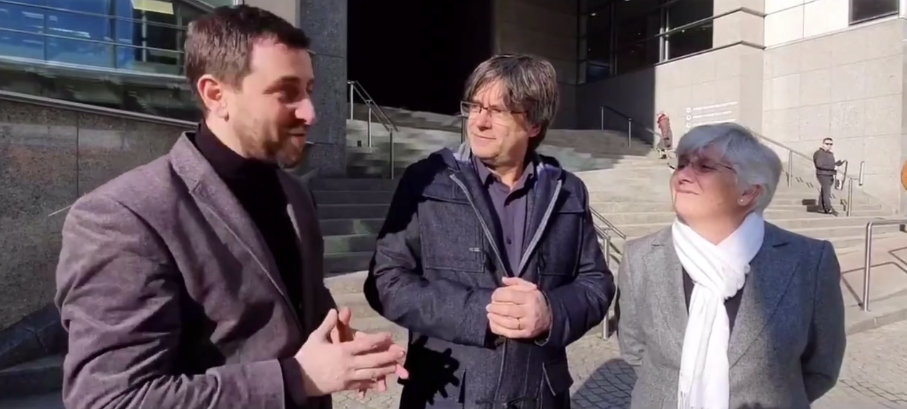12.05.2021 - 17:20
|
Actualització: 12.05.2021 - 19:20
The European Court of Justice (ECJ) published a ruling on Wednesday that can become a very important precedent for Spain to be forced to allow the free return of Catalan exiles. At the moment it can already have consequences on the cases of exiled president Carles Puigdemont and former minister Lluís Puig, both living in Belgium at the moment.
Puig has a firm sentence from the Belgian judiciary denying extradition to Spain on charges of embezzlement and Puigdemont has a firm ruling by a German court against the charge of sedition. And today the ECJ in Luxembourg ruled that a European citizen who has the right to free movement cannot be arrested if he has already been tried and has a firm sentence in a member state of the EU for the same accusations for which he is wanted by another state.
#ECJ : The principle prohibiting the duplication of proceedings can preclude the arrest, within the #Schengen Area and the #EU, of a person who is the subject of an Interpol notice #EuropeanArrestWarrant #EAW #nebisinidem
👉https://t.co/ATb3CgbPxg— EU Court of Justice (@EUCourtPress) May 12, 2021
The ECJ was responding to pre-trial question from the administrative court in Wiesbaden, Germany, about the case of a German citizen whose extradition was requested by the United States in 2012 on charges of corruption. He had already been sentenced two years earlier. This German citizen filed an appeal against Germany in 2017 requesting that the necessary measures be taken to withdraw the Interpol notification issued by the US authorities for his extradition, because that notification prevented him from moving freely inside EU member states, and specifically Benelux, Germany and France.
He considered that Article 54 of the Schengen Treaty was being violated, as someone cannot be arrested or prosecuted for a case for which one has already been tried (the non bis in principle), and also Article 21 of the Treaty on the Functioning of the EU, which establishes the right to move and reside freely within the territory of the member states of the EU. To resolve this case, the court in Wiesbaden asked the ECJ to make an interpretation of these articles to decide how the rights of this German citizen should be protected.
The sentence is not entirely satisfactory for the German citizen, as it states that in his specific case a provisional arrest would be justified, but the sentence does establish criteria for the interpretation of the treaties that may establish jurisprudence for the cases of the Catalan exiles. The ruling may be of great importance in the case of Lluís Puig, who already has a firm sentence from Belgium against the extradition request made by the Spanish Supreme Court, and Carles Puigdemont, who has a sentence in Germany, and for the rest of Catalan exiles whenever they have firm resolutions against their extradition.


